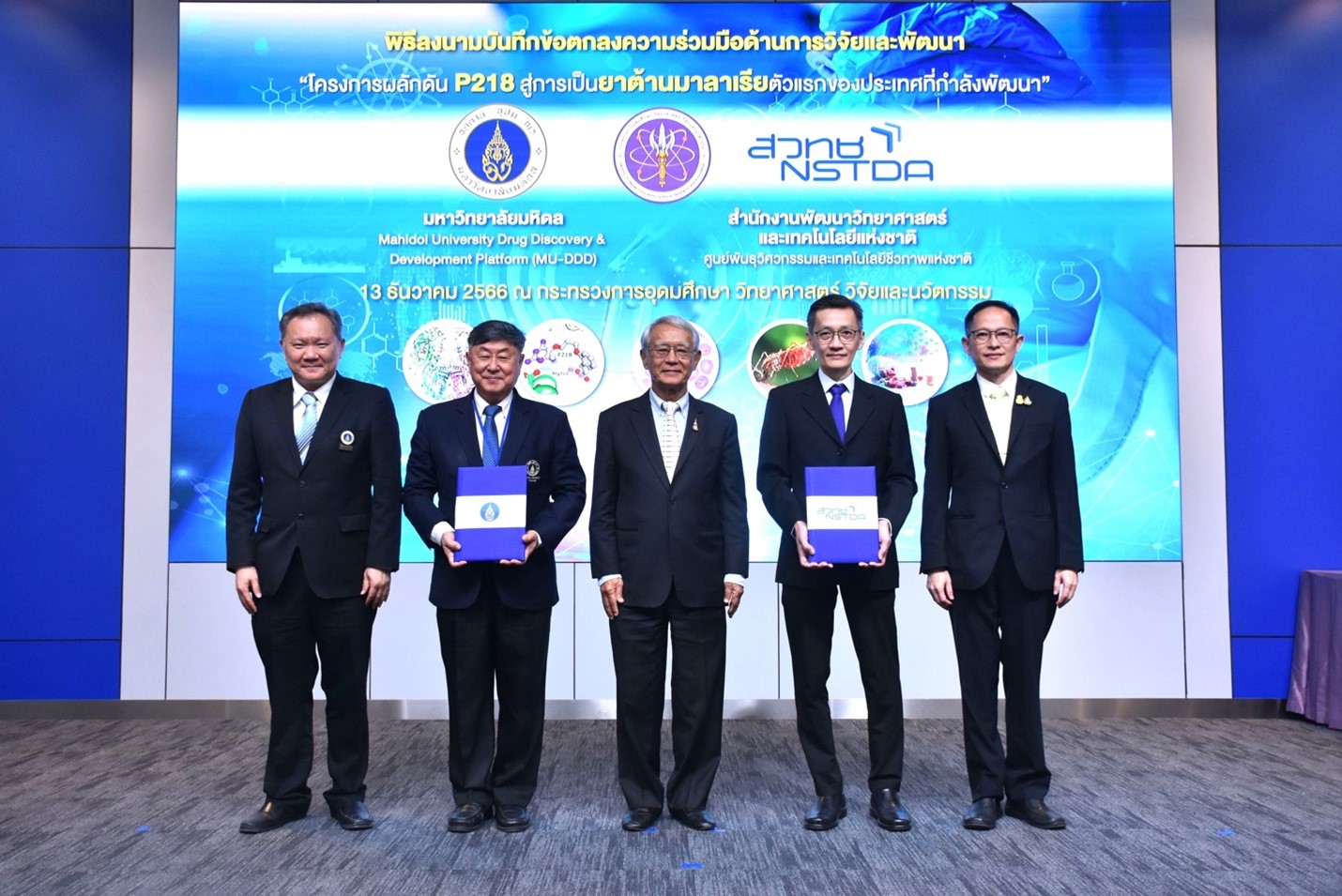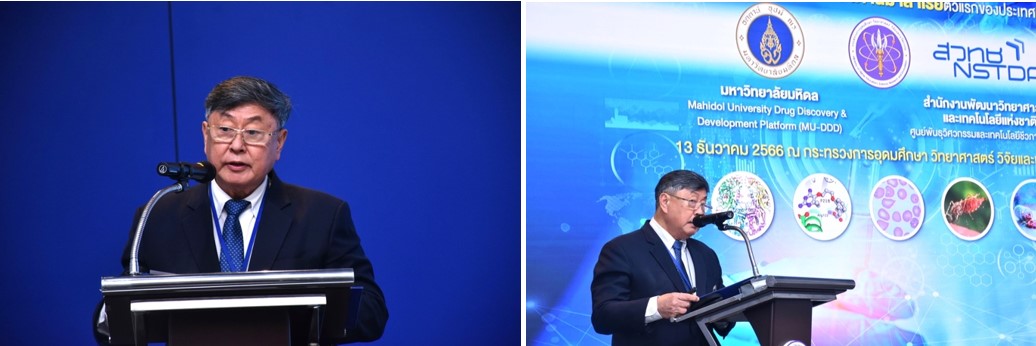
NSTDA and Mahidol University recently hosted a press conference to announce their collaboration in advancing the development of the P218 compound into an antimalarial medicine, marking the first antimalarial drug to be fully developed by a Thai scientific team. The collaboration is expected to make a significant contribution to Thailand’s health security, facilitating the eradication of malaria and improving access to affordable antimalarial drugs for developing countries.

Professor Emeritus Dr. Yongyuth Yuthavong, Senior Expert at NSTDA, emphasized that malaria remains a global challenge, causing over 600,000 deaths annually. The challenge in treating malaria is the rise of parasites resistant to currently available antimalarial drugs. There is a need to design new drugs that effectively combat drug-resistant parasites. BIOTEC-NSTDA, in collaboration with local and international partners, has dedicated over three decades to the study of antimalarials. In 2013, the research team successfully developed the P218 molecule that targets malarial enzyme dihydrofolate reductase (DHFR), marking the first antimalarial designed and synthesized by Thai researchers.

The collaboration between BIOTEC-NSTDA and Mahidol University will focus on toxicity testing of P218 in animals to assess the drug's effectiveness and predict the appropriate dosage. The partnership will be expanded to include other parties, such as Chulalongkorn University, to further develop the pharmaceutical products in compliance to international standards and establish an industrial production process, with an ultimate goal to create an affordable antimalarial drug.

Dr. Somboon Sahasithiwat, Executive Vice President of NSTDA, said that this collaboration represents a concerted effort of organizations under the Ministry of Higher Education, Science, Research and Innovation (MHESI) to leverage science, technology and innovation to strengthen public health. This initiative aligns with the government’s Bio-Circular-Green Economy (BCG) national agenda.

Prof. Banchong Mahaisavariya, M.D., President of Mahidol University, added that the university recognizes the potential of P218 and will utilize the Mahidol University Drug Discovery & Development Platform (MU-DDD) to advance its development into a Thai pharmaceutical product. Established in 2021 with funding from MHESI's Reinventing University Program, MU-DDD encompasses a comprehensive drug research process from upstream to downstream, leveraging the university’s expertise in animal studies and clinical studies.
“The research team of Mahidol University and BIOTEC has held regular meetings to plan studies aimed at obtaining necessary data for drug registration in Thailand and other countries. This process is expected to take about 2 years,” concluded Prof. Banchong.
